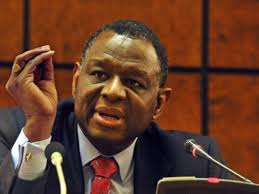The United Nations Population Fund (UNFPA) said the ability of women and girls to exercise their basic human rights is a prerequisite for achieving the Sustainable Development Goals (SDGs).
The UNFPA Executive Director, Dr. Babatunde Osotimehin, said in a statement that the global community had an obligation to advance the new agenda for sustainable development which enshrined gender equality as one of its goals.
“The ability of women and girls to exercise their basic human rights, including their right to sexual and reproductive health, is a prerequisite for achieving the Sustainable Development Goals,” he said.
Dr. Osotimehin spoke in commemoration of the International Women’s Day marked annually on March 8.
Newsmen report that on March 8 every year, International Women’s Day is celebrated to felicitate women and their achievements.
Women have come a long way in their struggle for equality, but there is still a long distance to cover.
Dr. Osotimehin said, “Gender equality is a human right; women are entitled to live in dignity and in freedom from want and fear, without discrimination.
“Gender equality is also vital to sustainable development, peace and security. It’s not just a woman’s issue; it’s an issue for all humanity,” he said.
He said that UNFPA was fully committed to ensuring the rights of women and girls to sexual and reproductive health services, including family planning.
“On this International Women’s Day, we urge the global community to join us. Together we can make a giant leap forward that saves lives, empowers women and girls, advances gender equality and ensures a more prosperous and sustainable future for all of us,” Osotimehin said.
The UNFPA executive director said studies had shown that family planning was the best investment countries could make for human development.
According to him, ensuring universal access to voluntary family planning is putting the poorest, most marginalised and excluded women and girls at the forefront of our efforts, particularly those in conflict and fragile settings.
He said: “Women and girls who can make choices and control their reproductive lives are better able to get quality education, find decent work and make free and informed decisions in all spheres of life.
“Their families and societies are better off financially. Their children, if they choose to have them, are healthier and better educated, helping break the spiral of poverty that traps billions and triggering a cycle of prosperity that carries over into future generations.”





